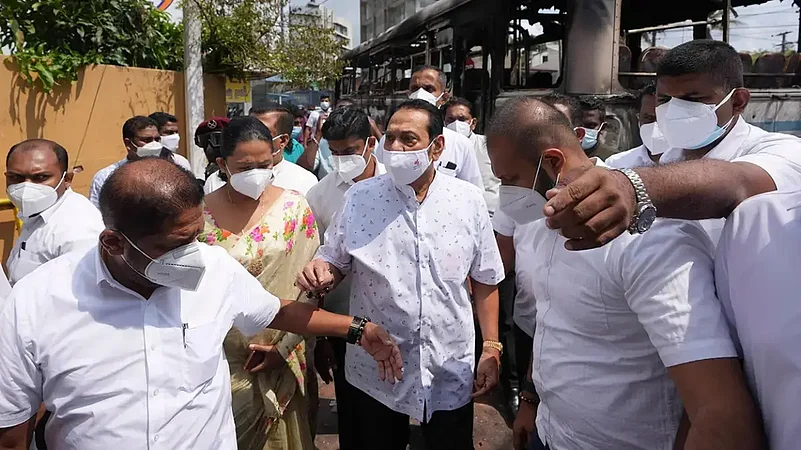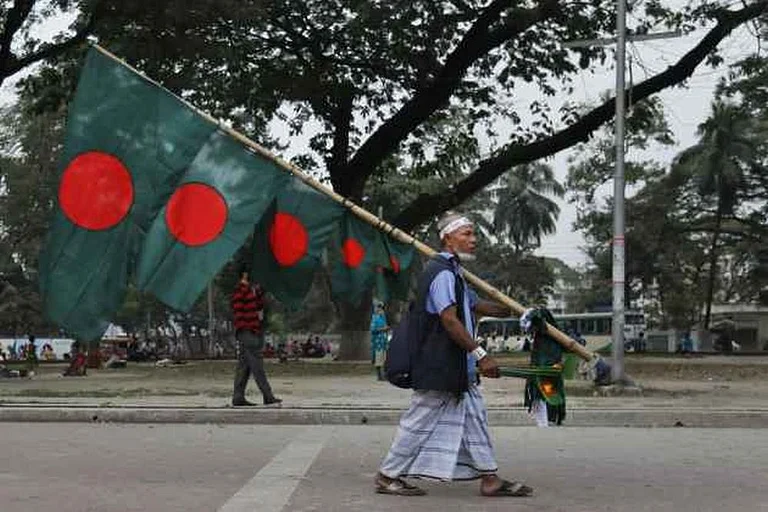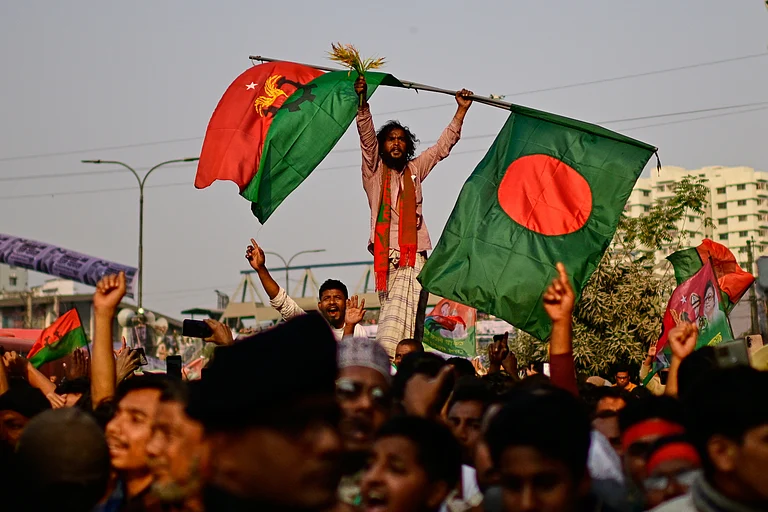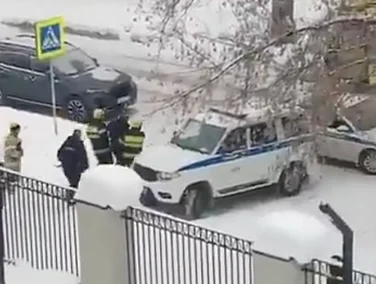Sri Lanka’s economic crisis is fast developing into a political one as growing public anger against President Gotabaya Rajapaksa and the family has led to demands for their ouster. “Go Home Gota” is a familiar cry of protesters.
With soaring food prices, severe power disruptions, shortages of everything from fuel to gas cylinders to kerosene, resentment is spilling on to the streets of the capital Colombo. People will naturally blame the government they had enthusiastically voted into power for being unable to handle the economic crisis. The Rajapaksa brothers, once adored by the Sinhala Buddhist majority for crushing the LTTE and its leadership, are now witnessing a quick erosion of support with calls for the family to quit.
While peaceful protests have continued for over a month in Sri Lanka, protestors on Thursday outside President Gotabaya’s residence turned violent, giving the government the perfect excuse to clamp a public emergency in the name of protecting life and property. The island nation is not unfamiliar with emergency rule as Sri Lanka had long spells of emergency during the war against Tamil separatists, when security was a major concern and bomb blasts and attacks on political leaders common.
Claims by the President’s press office that the protestors were extremists hoping to usher in a revolution have been discredited. Over 50 protestors were arrested on Thursday after the violence. Young lawyers had rushed to their defence and argued for their release free of cost.
Social media activist Anuruddha Bandara, who was arrested for creating the social media page "Go Home Gota 2022", was released on bail after being produced in the Colombo Magistrate's Court. He was produced after midnight and at least 50 lawyers were outside the court when he was presented before the magistrate.
"The state-instigated oppression is on full scale in Sri Lanka and the lawyers of Sri Lanka are taking the fight head on,” said a lawyer representing the activist in his Facebook post.
Yet despite the emergency and curfew ordered by the government, people are ready to defy the law. Naturally the Opposition is taking full advantage of the situation. Unmindful of the strict curfew orders from 6 pm on Saturday to 6 am on Monday, imposed to counter a series of rallies on Sunday, Sajith Premadasa, son of a former president and the Leader of the Opposition, decided to go ahead with a scheduled protest. They were met by a wall of security officials and stopped. In Kandy, police fired tear gas on protestors on Sunday. Social media has been disrupted to make it difficult for people to organise anti-government demonstrations.
Sajith Premadasa tweeted on the blanket ban on social media brought in by a panicky government.
Significantly, Sports Minister Namal Rajapaksa, son of Mahinda Rajapaksa, criticised the ban.
He said on Twitter, "I will never condone the blocking of social media. The availability of VPN, just like I’m using now, makes such bans completely useless. I urge the authorities to think more progressively and reconsider this decision.”
Anger against the Rajapaksas runs deep, forcing the family to curtail their public appearances. The prime minister’s wife was to inaugurate a flower show in Nuwara Eliya but that got cancelled because the crowd began booing. Spectators were banned from a rugby match in Kandy where the PM’s youngest son was playing for one of the teams. Fear of hooting by the crowd led to a ban on rugby fans. At the moment, the Rajapaksa family has become a target for the suffering people of the island nation.
Rumours are flying high and low across Colombo. The Indian envoy Gopal Baglay had to issue a press statement denying rumours that India was sending its military to quash the anti-government protests.
There were also speculations in some quarters that Mahinda Rajapaksa and his family had left the country. This was again nothing more than loose talk.
But unless the Rajapaksa brothers get their act together quickly, the situation is likely to get much worse. While the country is without diesel, a tanker carrying 37,000 tonnes of diesel is anchored outside Sri Lanka’s territorial waters. The tanker has to be paid $40 million before it agrees to deliver the oil.
The current crisis is the result of bad financial management by successive governments. The COVID-19 lockdown led to the drying up of dollars brought in by Sri Lanka’s thriving tourism industry. Add to this President Gotabaya’s ban on the import of chemical fertilisers and proclaiming that Sri Lankan agriculture would go completely organic in 2021, which proved to be a major setback. Tea production, another major revenue earner, dropped and normal agriculture went for a toss. This is a country where 70 per cent people depend on agriculture. The foreign exchange reserves dipped and today the island nation is facing its worst economic crisis since Independence.
The Island newspaper wrote in a scathing editorial, “The pauperisation of the nation, and its leaders’ begging sprees have placed the country’s national security, independence, sovereignty, and strategic assets in jeopardy. There is no such thing as an economic bailout package without strings attached.”
The paper went on to talk of prime land being sold to China, a reference to the Colombo city project and the Hambantota port. India, the paper said, had gone on to bag the Trincomalee oil tank farm and persuaded the Rajapaksa government to “cough up a container terminal in the Colombo port for the Adani group”. A team of senior US officials was in Colombo recently and the paper wondered what the US would get.



























